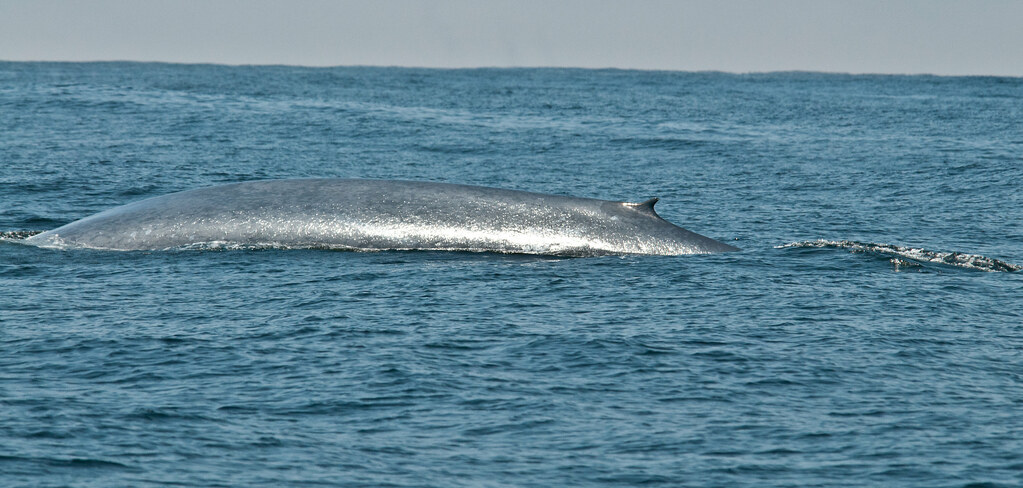Blue Whales Going Silent: Alarming Trend
By Asmita - Aug 06, 2025
Blue whales, the largest animals on Earth, are becoming increasingly silent as their vocalizations have dropped by nearly 40% in the past decade. The decrease in singing is attributed to devastating marine heatwaves, food scarcity, and increased ocean noise from human activities. This silence not only impacts the whales' behavior but also serves as a warning sign of ecological distress in the oceans, with implications for biodiversity and ocean health.

Blue Whale via Flickr
Scientists have recently raised alarm as blue whales, the largest animals on Earth and once the ocean’s most powerful vocalists, are becoming eerily silent. Research conducted by the ,[object Object],, as published in ,[object Object],, has uncovered that blue whale songs have plummeted by nearly 40% over the past decade. This acoustic silence is not just a change in behavior—it's an ecological warning signal. The root of this shift lies in devastating marine heatwaves, most notably a massive event dubbed “The Blob,” first detected in 2013. Spanning thousands of miles, this abnormally warm patch of Pacific water triggered toxic algae blooms and devastated populations of krill and anchovies, the whales’ main prey.
The loss of food caused whales to spend far more time searching for sustenance and far less energy on singing. Blue whale calls—critical for navigation, mating, and social coordination—require significant physical resources. As marine heatwaves collapsed food chains, whales on the brink of starvation diverted all their effort to survival. Oceanographer John Ryan likened it to “trying to sing while you’re starving.” The six-year study off California’s coast revealed that as food diminished, the whales’ vocalizations both decreased in volume and frequency. Notably, distinct call types used for feeding and reproduction—such as the low-frequency D calls—were observed less often during warm waters.
Adding to the crisis, increased ocean noise from global shipping and industry is compounding natural stress. Ocean soundscapes are now saturated with the roar of ship engines, drilling, and sonar. Blue whales evolved in a quiet sea, and their deep voices once traveled across vast oceanic expanses. Now, chronic noise pollution drowns out whale songs, further impeding their long-distance communication. As a response, some whales have started calling at even lower frequencies, but this adjustment does not fully compensate for the masking effect of noise. The combination of food scarcity and acoustic interference disrupts social structures, migration, and breeding patterns, signaling widespread ecological stress throughout the marine ecosystem.
Consequences reach beyond the whales themselves. Blue whales are considered a sentinel species; their declining vocal output acts as a barometer for ocean health. Fewer and fainter songs point to an ecosystem under immense pressure, with repercussions for biodiversity, fisheries, and even carbon cycling, since whales play a key role in ocean nutrient distribution. Scientists warn that if these trends continue, the silence of blue whales may foreshadow lasting changes in the world’s oceans—signifying not just the vulnerability of one species, but the unraveling of an entire oceanic web.


